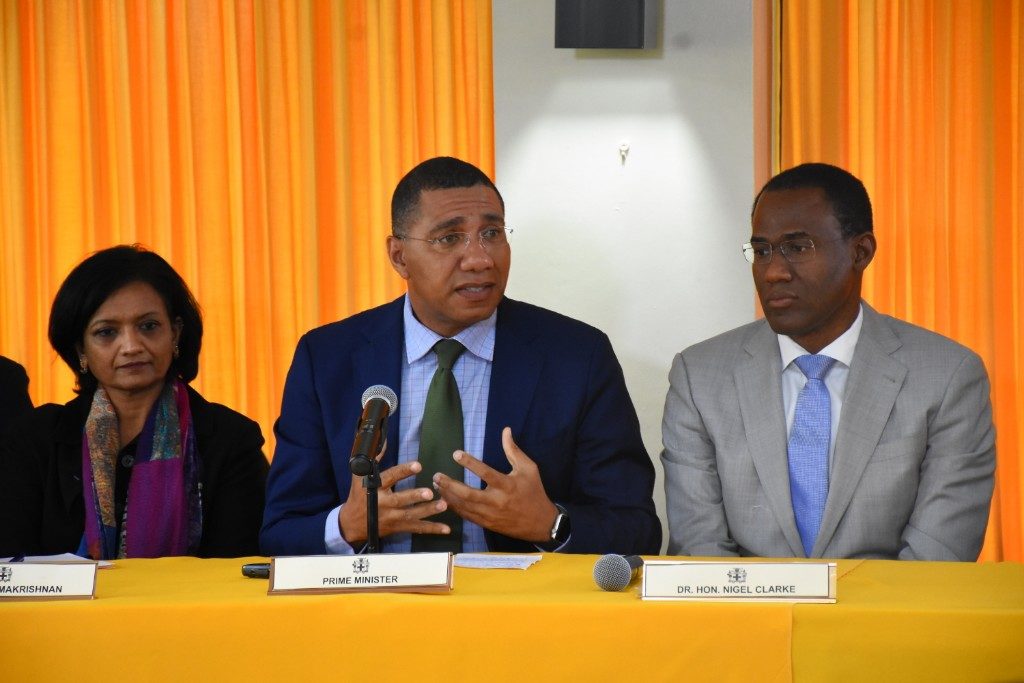Our Economic Efforts are Bearing Fruit – PM Holness

Prime Minister Andrew Holness says the country’s economic reform programme is proceeding on track.
The Government today (September 21) successfully completed the fourth review of its Stand-By Agreement with the International Monetary Fund (IMF) in Kingston.
During the Government of Jamaica/IMF end of review mission press briefing held at the Office of the Prime Minister this morning, Prime Minister Holness stated that the country’s economic reform efforts are bearing fruit.
“The evidence of this is that there is projected growth by the PIOJ; reserves are ahead of programme targets, we now stand at US$3.1B; employment continues to be strong; inflation continues to be low; interest rates are at record low and generally there is a sense of confidence in the economy”, explained the Prime Minister.
The Prime Minister declared that there are opportunities in the economy.
“The economic reform success is not just impactful on the national economy, but it is impacting your household economy. More people are employed, you are seeing the investments being made in infrastructure. The government is sharing the dividends of the improved economy with the most vulnerable in our society. We have increased our social spending on PATH and on the HOPE Programme. This is why we must continue with the reform programme”, added Prime Minister Holness.
There is a macro-critical nature to Governance
In the meantime, Prime Minister Holness emphasized that governance is critical to all reforms undertaken by the Government.
“Governance is the critical element because in doing the reforms we have created institutions; institutions to embed the reforms, and, institutions to actuate the reforms. So, then, the central question becomes how well are our institutions run? Who is running them, and, are the people running them competent and capable? So, it’s not just how well they are run but from a macro perspective, the institutions if not run properly, or if run properly, can make either a profit or a loss or they can grow or stagnate”, explained Mr Holness.
Prime Minister Holness stated that when public institutions record a loss, it is the public that bears it. He said this will lead to higher debt. “If the institutions don’t make wise decisions that grow their portfolios, then the economy won’t grow so governance has a macro-critical nature to it”.
The Prime Minister says in the next half-yearly review the IMF will examine the key parameter of governance of our institutions.
“It means we’ll be looking at Public Bodies, we’ll be looking at how our Boards are appointed, the competence profile of the Boards. We’ll be looking at all the issues to give the public confidence that our public institutions are run in their best interest; we understand that Governance impacts growth”, stated Prime Minister Holness.
The Prime Minister also declared, that “the government will institutionalize good governance to make sure that the sacrifice that the country has made in this decade of reform, that these reforms continue that they are embedded that they are not at the whims and fancies of the political cycle that the dividends are protected and preserved for generations to come”.